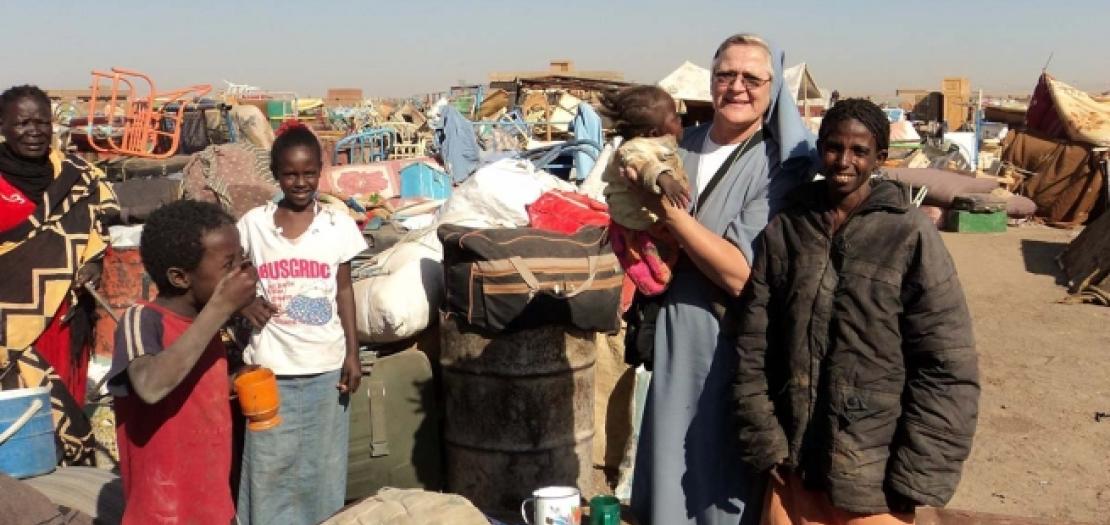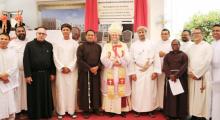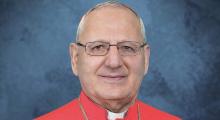Issued by the Catholic Center for Studies and Media - Jordan. Editor-in-chief Fr. Rif'at Bader - موقع أبونا abouna.org

"We are here to turn the spotlight on Sudan, a country where a devastating humanitarian catastrophe is underway and which has been almost forgotten". These were the words of Marco Impagliazzo, president of the Community of Sant'Egidio, at the press conference dedicated to the very serious humanitarian emergency in Sudan. Vittorio Oppizzi, head of programs in Sudan for Médecins Sans Frontières (MSF), Pietro Parrino, director of the Projects Department of Emergency, Sister Ruth del Pilar Mora, councillor for the Missions of the Salesian Sisters, and Father Angelo Giorgetti, treasurer general of the Combonian Missionaries also made their contributions.
"We ask the Italian government, considering the presidency of the G7 and a renewed interest in Africa through the Mattei Plan, to relaunch negotiations on an immediate ceasefire," added Impagliazzo. He recalled the aid already brought to some crisis areas in the region by Sant'Egidio and also called for "unhindered humanitarian access to respond to civilians experiencing crisis levels of hunger".
"Sudan is facing the worst crisis in its history, a civil war that followed two coups and a long period of instability. Aviation and heavy artillery is being used even in the capital Khartoum. A large part of the population has had to flee. Out of some 47 million inhabitants, almost ten million are internally displaced, two million sought safety in neighboring countries, mainly Egypt and Chad. It is therefore crucial to relaunch negotiations," concluded Impagliazzo, mentioning the presence of a Sant'Egidio Community in El Obeid.
"We are opening new nutritional centres in Sudan; in the past few days it has happened in a rural area of West Darfur: the facility filled up in just one day and we immediately had to add beds". Vittorio Oppizzi, head of programmes in Sudan for Médecins Sans Frontières reports: 'In the capital alone, the fighting has affected seven million people. Khartoum is now a ghost town". Oppizzi reports that just last week Msf had to suspend its activities in a hospital in Khartoum because of the current perilous situation.
The Salesian missionaries remain in Khartoum despite the war and are also witnessing an increasing number of refugees heading from the north to South Sudan. Sister Ruth del Pilar Mora, councillor of the Institute of the Daughters of Mary Help of Christians, said: "We wanted to continue to stand by the population, particularly in terms of education. We ran an informal school that was attended by 700 children before the conflict. Now there are 110 people left, we have been hit directly by bombing twice and thus we cannot use all the living spaces".
In Sudan, "there is a generation of children and adolescents who have been without any kind of school and any possibility of learning for over a year", Father Angelo Giorgetti, Combonian treasurer general, who was missionary in the African country for 16 years, explains: "We are faced with a complicated situation. Our three communities in Khartoum have all been evacuated because they were in very central locations, which have been the site of direct fighting since the beginning. The entire population has fled from those areas". However, the Combonians have not left the country, a missionary land since the 19th century. "We have maintained three communities, in Kosti, El Obeid and Port Sudan. The field of education remains important to us for dialogue with the population, the overwhelming majority of which is Muslim".
"In the midst of great difficulties we still managed to surge 11,000 people," says Pietro Parrino, director of Emergency's Project Department. "In Khartoum, a capital largely emptied of its inhabitants, there is a lack of electricity and therefore also of other essential goods such as water, which is only taken from surface wells. Healthy food is scarce and the forces on the ground hinder the passage of humanitarian aid. But it is important to stay in order to continue treating those whose lives are in danger".







